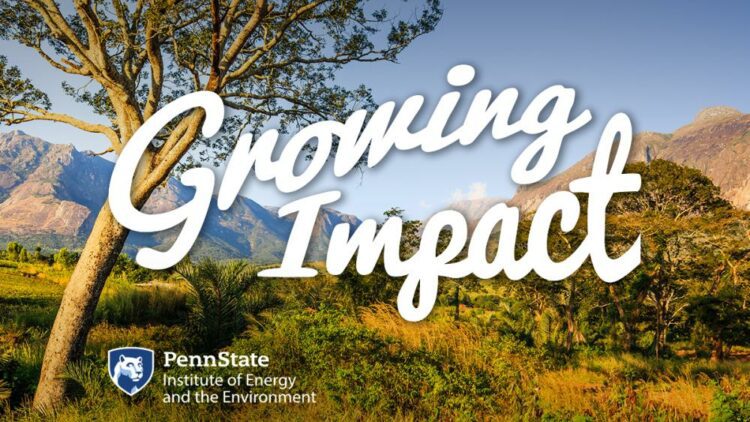UNIVERSITY PARK, Pa. — The latest episode of “Growing Impact” discusses landscape restoration as a potential natural climate solution for Africa. The research team is using Malawi as a country case study because, like many countries in Africa, Malawi is facing environmental challenges including deforestation, soil erosion and unsustainable farming practices.
The podcast features Penn State researchers Ida Djenontin, an assistant professor in the Department of Geography, and Tong Qiu, an assistant professor in the Department of Ecosystem Science and Management. The podcast also features Judith Kamoto, director of Bunda College of Lilongwe University of Agriculture and Natural Resources in Malawi and in-country project co-investigator.
“Forest and landscape restoration is an approach to restore and reclaim degraded ecosystems to bring back the ecological functionalities that are important for both human well-being and ecological well-being,” Djenontin said. “It’s about any types of restoration activities that can help us to restore the biophysical aspect of a landscape, but also the ecosystem services on which people depend.”
There are many benefits of landscape restoration for the people of Malawi, according to the researchers.
“There are benefits to the ecosystem, benefits to social beings, benefits to the cultural or religious — especially this side of the continent, these things matter a lot,” Kamoto said. “Most importantly, restoration represents a means to adaptation to climate change as well as mitigation to climate change, which is a global problem.”
Qiu said climate change is also afflicting animals on the continent.
“Basically, every single species group is affected by climate warming,” Qiu said. “Some species can move around and find shelter in different places. But habitat degradation removes those shelters, so they won’t be able to find places that can mitigate climate warming impacts.”
Malawi is one of 34 African countries that has pledged to restore its lands.
“There are restoration projects on the ground,” Djenontin said. “By taking Malawi as a case study, we want to understand what restoration is achieving — how it is affecting people and how it is changing the governance that helps to manage those resources. This will allow us to inform restoration as a policy to determine if we are achieving what we are expecting. That’s important.”
The team also recognizes the immense challenges facing Malawians, including poverty and lack of education, that contribute to deforestation and landscape degradation.
“I think for sub-Saharan Africa, degradation is happening because of the socioeconomic situation in which most people find themselves,” Kamoto said. “The levels of poverty are high, that the only way out to any income is through forest products, of which timber is the most lucrative.”
“Growing Impact” is a podcast by the Institute of Energy and the Environment (IEE). It features Penn State researchers who have been awarded IEE seed grants and discusses their foundational work as they further their projects. The podcast is available on multiple platforms, including Apple, Google, Amazon and Spotify.
Source link : https://www.psu.edu/news/institute-energy-and-environment/story/growing-impact-examines-landscape-restoration-malawi/
Author :
Publish date : 2023-11-02 07:00:00
Copyright for syndicated content belongs to the linked Source.
